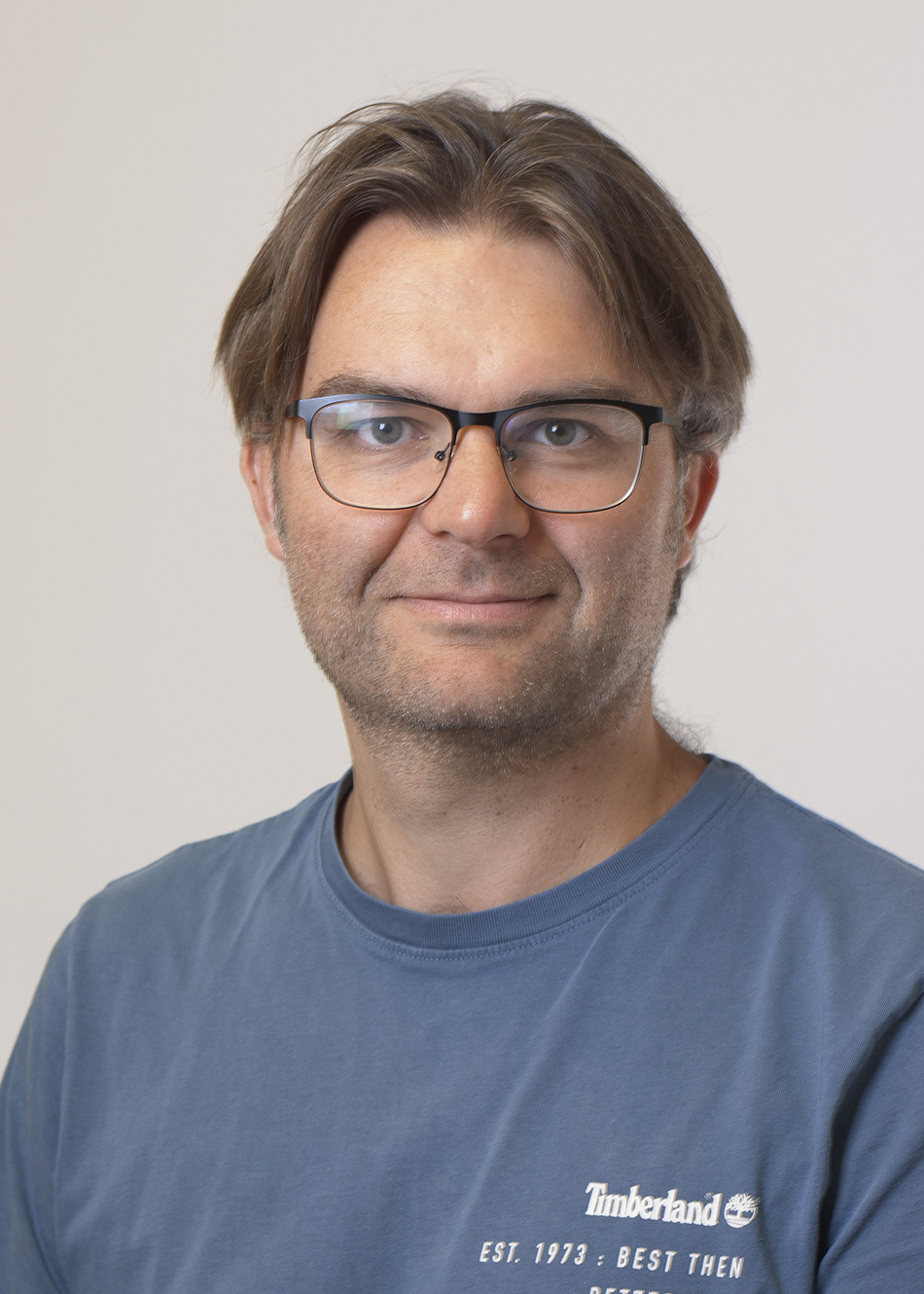Esben Lorentzen appointed Professor in Computational Structural Biology
Esben Lorentzen has been appointed Professor in Computational Structural Biology at the Department of Molecular Biology and Genetics at Aarhus University as of 1 May 2024. His research focuses on understanding the structure and mechanism of large protein complexes driving cellular organization and function.

Esben Lorentzen’s research is dedicated to addressing critical challenges in molecular biology with a particular focus on intracellular transport mechanisms and cilium formation in eukaryotic cells. Cilia are cellular antennas that allow communication between cells to drive the development of organisms, and faulty cilia lead to a number of diseases such as kidney cysts, obesity, and blindness.
How cells construct slim hair-like ciliary organelles with specialized functions is still largely a mystery, but we know that it does require the assistance of large intraflagellar transport complexes that, with the help of molecular motors, ferry proteins in and out of the cilium. Both cilia, as ancient eukaryotic organelles, and intraflagellar transport, as a fundamental biological process, are evolutionarily conserved from single-celled green algae to humans. The research group of Esben Lorentzen uses structural biology techniques to unravel the mechanisms of how transport proteins assemble into very large complexes that organize cilia organelles in cells.
Emphasizing the growing significance of computational methods in molecular biology, the group led by Esben Lorentzen has adopted advanced machine-learning techniques to predict and design the structure of protein complexes. One notable achievement here is the recent publication of a structural model for the 15-subunit intraflagellar transport complex. This model has been pivotal in elucidating the distribution of cargoes and molecular motors, as well as enhancing our understanding of disease mutations through their mapping onto the structural model. As we move forward, the research group led by Professor Esben Lorentzen will increasingly incorporate computational methods to design proteins with novel functions.
Esben Lorentzen – brief biography
Esben Lorentzen earned his PhD jointly from the European Molecular Biology Laboratories (EMBL) in Hamburg, Germany, and Aarhus University in 2004, focusing on the study of metabolic enzyme mechanisms under the supervision of Prof. Ehmke Pohl.
Following his doctoral studies, Esben Lorentzen shifted his focus to elucidating the mechanisms of RNA processing and degradation. He carried out postdoctoral research at the EMBL in Heidelberg, Germany, under the mentorship of Prof. Elena Conti, and at Birkbeck College in London, UK, guided by Prof. Helen Saibil. His work during this period involved the use of structural biology methods such as X-ray crystallography and single-particle cryo electron microscopy to determine experimental structures of RNA degrading exosomes.
In 2009, Esben Lorentzen assumed the role of Research Group Leader at the Department of Structural Cell Biology at the Max Planck Institute of Biochemistry in Martinsried, Germany. Here, he established himself as a leader in the fields of intracellular protein trafficking and cilium formation, funded by both the German research council and an ERC career grant.
In 2016, Esben Lorentzen received the Novo Nordisk Foundation Young Investigator award, which facilitated the transition of his research group to Aarhus University in Denmark. Here, he continued his structural and mechanistic studies of cilium formation as an Associate Professor at the Department of Molecular Biology and Genetics. The work of his research group includes the experimental structure determination of numerous protein complexes to elucidate their function in organizing the inner life of eukaryotic cells and understanding what goes wrong in cilium-related human diseases.
Esben Lorentzen actively engages in teaching biochemistry and structural biology courses at Aarhus University. He is the course responsible for Biomolecular Structure Determination where Master and Ph.D. students get a thorough introduction to structure determination using X-ray crystallography and cryo-electron microscopy, as well as structure prediction using machine-learning techniques such as AlphaFold.
More information
Esben Lorentzen
Department of Molecular Biology and Genetics
Aarhus University
Denmark
el@mbg.au.dk
